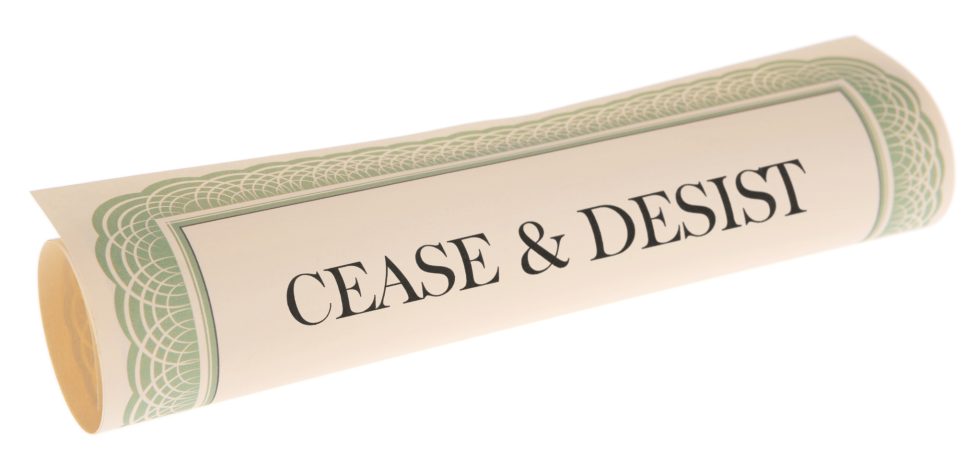
Introduction
A registered trademark business name gives you exclusive rights to your brand identity, but securing a trademark is just the beginning. If another business or individual uses your trademark without permission, it can lead to customer confusion, loss of sales, and damage to your reputation.
One of the first steps in stopping trademark infringement is sending a cease and desist letter. This legal notice formally demands that the infringer stop using your brand name, logo, or other protected elements before taking further legal action.
In this guide, we will explain how to draft a cease and desist letter, when to use it, and what steps to take if the infringer does not comply.
1. What Is a Cease and Desist Letter?
A cease and desist letter is a formal legal document sent to an individual or business demanding that they stop engaging in trademark infringement. It serves as a warning before legal action is taken.
A properly written cease and desist letter should:
- Clearly identify the trademark brand name being infringed.
- Provide evidence of your trademark registration.
- Demand that the infringer stop using your trademark.
- Warn of legal consequences if they do not comply.
Sending this letter is often the first and most cost-effective step in stopping trademark infringement.
2. When Should You Send a Cease and Desist Letter?
If you notice that another company or individual is using a trademark name similar to yours, consider sending a cease and desist letter if:
- A competitor is using a similar business name in the same industry.
- An online seller is selling counterfeit products under your brand name.
- A website or social media page is impersonating your business.
- Someone is using a confusingly similar logo, slogan, or domain name.
If left unaddressed, these violations can weaken your brand and cause financial losses. A cease and desist letter is a fast and effective way to protect your trademark business name.
3. How to Write a Cease and Desist Letter for Trademark Infringement
Step 1: Identify the Infringing Party
Before drafting your letter, gather evidence that proves the infringement. Identify:
- The name of the infringing business or individual.
- Where they are using your trademark (website, social media, products, ads, etc.).
- Any customer confusion or harm caused to your brand.
Step 2: Clearly State Your Trademark Rights
The letter should include:
- Your registered trademark name and registration number.
- Proof that you own the trademark (USPTO registration certificate, business filings, etc.).
Example:
"We are the registered owners of the trademark [Your Trademark Name], registered under USPTO number [Registration Number]. Any unauthorized use of our trademark is a violation of our exclusive rights."
Step 3: Explain How the Infringer Is Violating Your Rights
Describe how they are misusing your brand name, logo, or slogan and explain the legal grounds for your complaint.
Example:
"Your company, [Infringer’s Business Name], is currently using a name/logo that is confusingly similar to our registered trademark in the same industry. This use is likely to mislead consumers and constitutes trademark infringement under U.S. law."
Step 4: Demand That They Stop Using Your Trademark
Clearly state that they must immediately stop using your trademark and remove any infringing materials.
Example:
"We demand that you immediately cease and desist from using [Trademark Name], remove all infringing materials, and refrain from further unauthorized use."
Step 5: Set a Deadline for Compliance
Give the infringer a specific time (usually 7-14 days) to comply with your demands.
Example:
"Failure to comply within 10 business days will result in legal action, including but not limited to a lawsuit seeking damages and an injunction to prevent further use."
Step 6: Include Legal Consequences
Warn the recipient of the potential legal actions you will take if they fail to comply.
Example:
"If you do not cease and desist within the given time frame, we will pursue all available legal remedies, including filing a lawsuit for damages and seeking an injunction to stop further infringement."

Step 7: Provide Contact Information
Include your contact details and invite the recipient to respond within the deadline.
Example:
"Please confirm in writing that you will comply with our demands. You may contact us at [Your Contact Information] if you have any questions."
4. What to Do If the Infringer Ignores Your Cease and Desist Letter
If the infringer does not comply, take further action:
- Follow Up – Send a second letter with a stronger warning.
- File a Trademark Complaint – Report the infringement to online platforms like Amazon, eBay, or Google.
- Trademark Dispute Insurance – If applicable, your trademark dispute insurance can help cover legal costs.
- Pursue Legal Action – If the infringement continues, you may need to file a lawsuit to enforce your trademark business name rights.
Taking quick action protects your brand and prevents further financial damage.
5. When to Hire a Trademark Attorney
While many business owners draft cease and desist letters themselves, consulting a trademark attorney is recommended if:
- The infringement is severe and causing significant financial harm.
- The infringer refuses to respond or comply with your demands.
- You are considering filing a trademark lawsuit.
A trademark attorney ensures that your cease and desist letter is legally enforceable and increases your chances of success.
Conclusion
A cease and desist letter is one of the most effective tools for trademark enforcement. It allows businesses to protect their trademark rights without immediately resorting to expensive lawsuits.
By identifying infringers, drafting a strong legal notice, and taking further action if necessary, businesses can prevent unauthorized trademark use and maintain brand integrity.
If you suspect someone is infringing on your trademark business name, take immediate action to safeguard your brand.